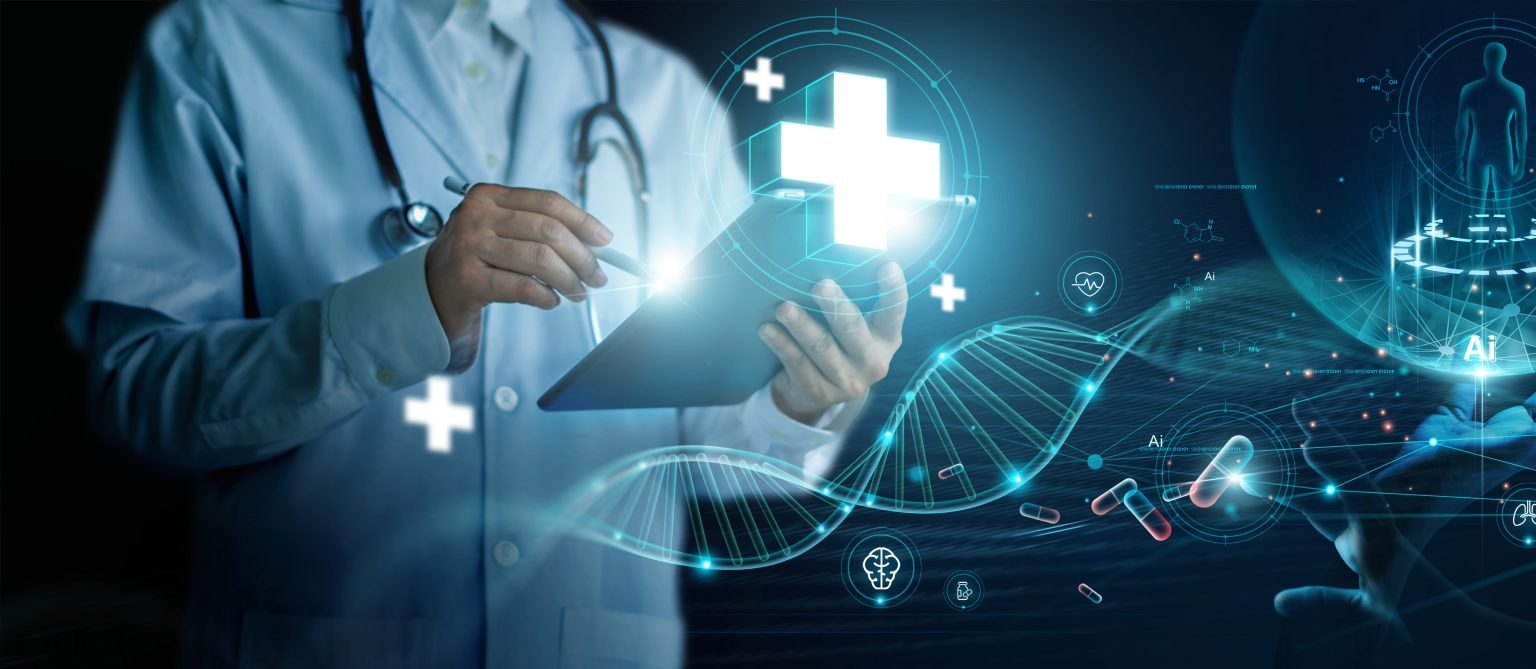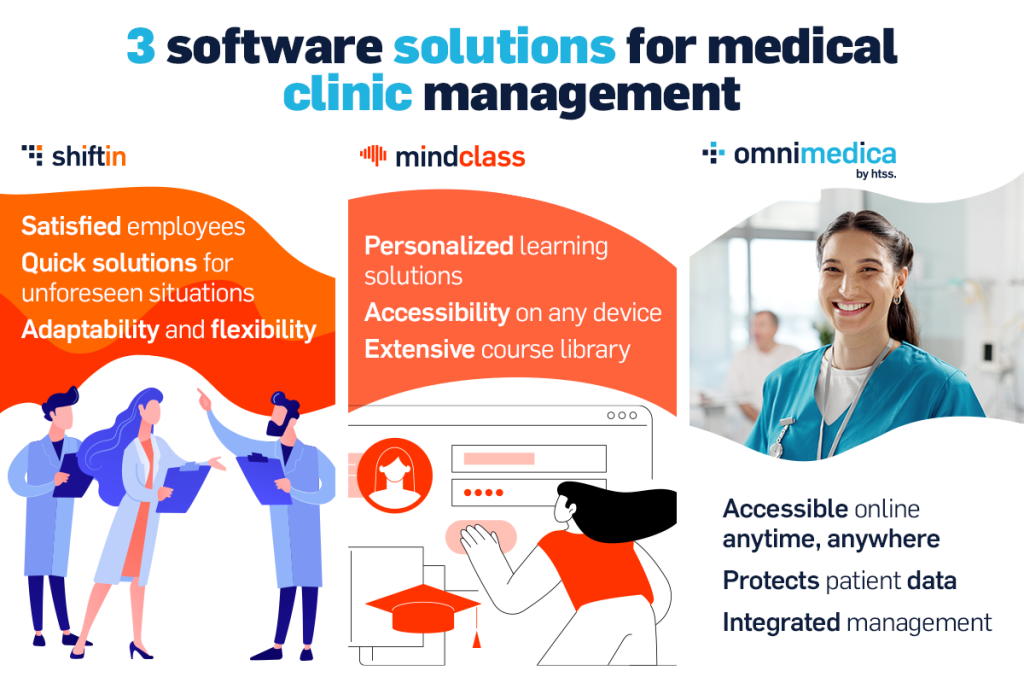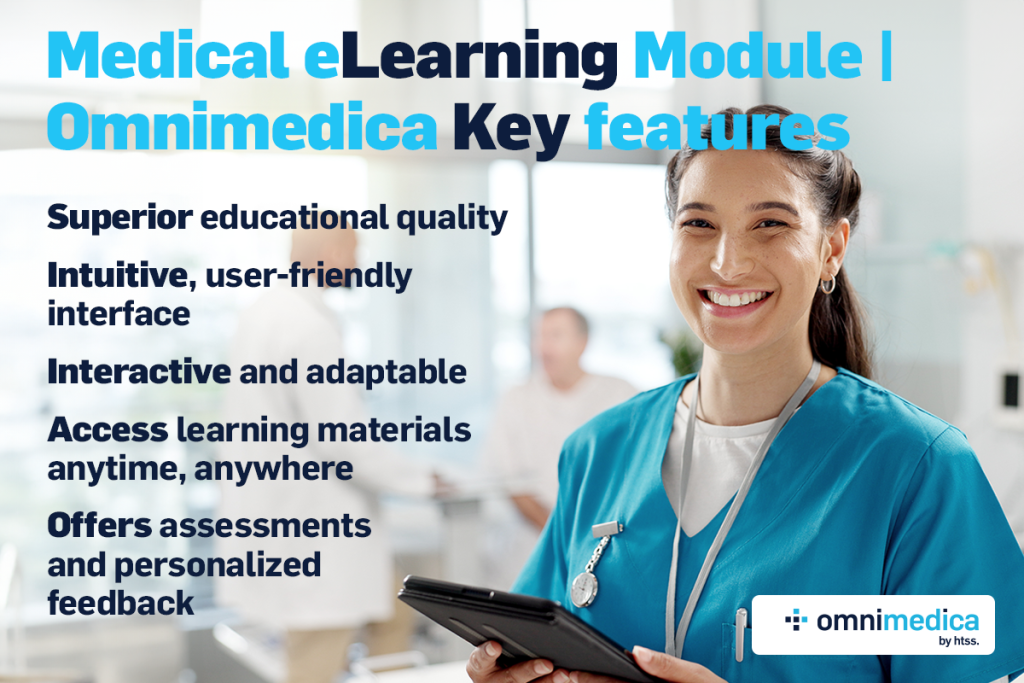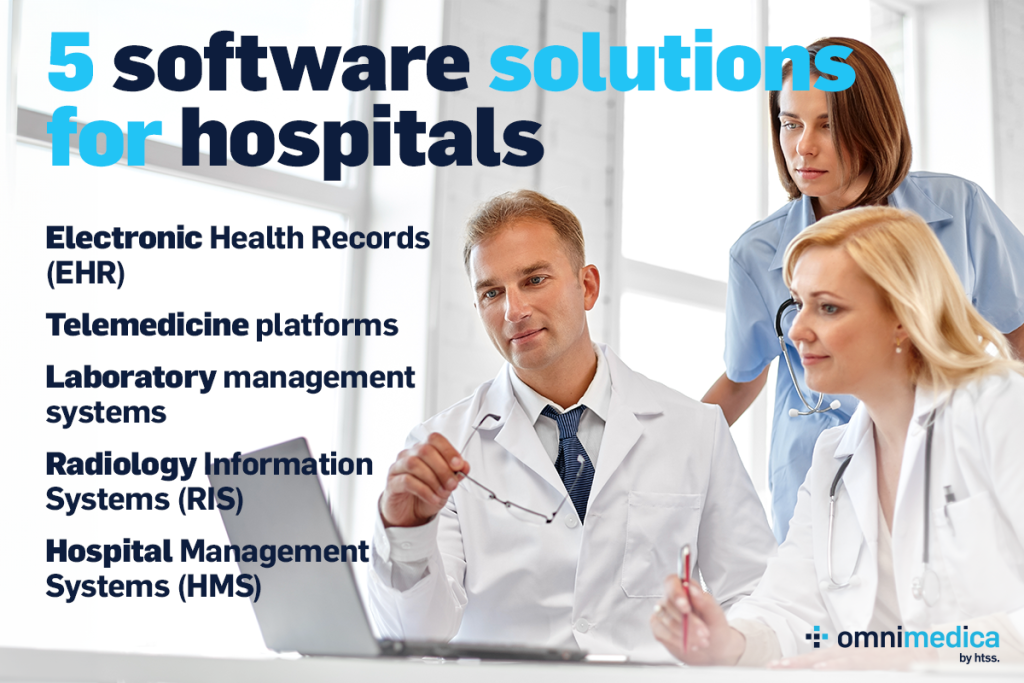Implementing Omnimedica in your healthcare practice can revolutionize the way you manage patient care and administrative tasks. With its comprehensive suite of features, Omnimedica not only enhances patient satisfaction but also improves the efficiency and effectiveness of your practice. Omnimedica offers a plethora of functionalities that help your establishment thrive in the medical domain and in this article, we will focus on 5 of them.
Hospital module
Omnimedica’s Hospital module is intended to streamline hospital management, increasing the efficiency of healthcare delivery and simplifying the task of medical personnel. Omnimedica ensures that hospitals run efficiently, reducing delays and improving patient outcomes. The Spital module also interacts with other hospital systems, allowing for seamless communication across departments and keeping patient information up to current and accessible. This function covers a wide range of hospital activities, such as patient admissions and discharge, bed management, digital patient history, individualized patient recommendations, and many more.
Patient care plan module
The Patient Care Plan functionality of Omnimedica focuses on personalized patient care planning. This feature allows healthcare providers to create detailed care plans tailored to each patient’s unique needs while taking into acount critical pieces of patient information such as medical investigations, medication history and other health measurements. The Patient Care Plan module ensures that patients receive consistent and comprehensive care through the automation of administrative processes related to lab requisitories and medication inventories. This functionality is able to provide accurate indications, has integrations with IoMT devices to transfer measurements (pulse oximetry, pulse, etc.) and allows for the downloading of data from medical devices, providing medical staff with a hollistic view of a patient’s state and care needs.
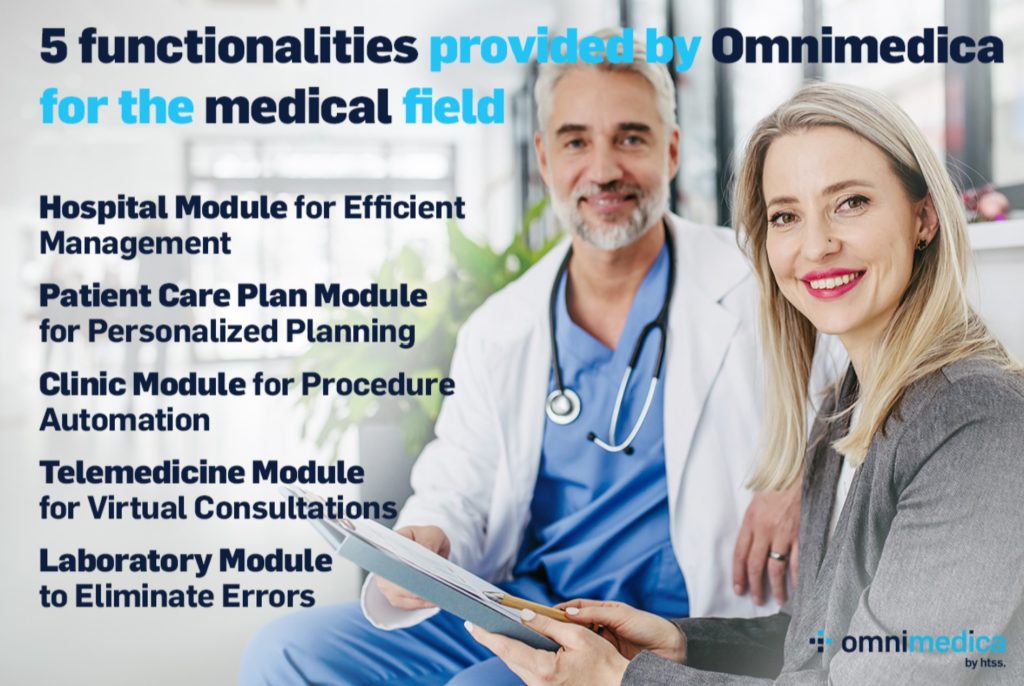
Clinic module
Omnimedica’s Clinic Module is specifically developed to manage outpatient clinics. This module improves clinic operations by automating common procedures and allowing healthcare workers to quickly access patient information. This feature facilitates a variety of clinical procedures, including patient registration, appointment scheduling, medical record administration, and billing. The Clinic Module also simplifies patient appointment tracking and integrates with contact center and SMS services.
Telemedicine module
Omnimedica provides a comprehensive Telemedicine capability that meets the modern standards of the medical business. This function allows healthcare providers to do virtual consultations with patients, guaranteeing continuity of care even when in-person visits are not feasible. The Telemedicine module is based on a Zero Paper Approach, which allows medical professionals to gain a holistic perspective of patients’ medical history while also allowing patients to transparently visualize their medical outcomes, such as their results or X-rays all digitally. Boasting high levels of security, patients gain from the ease of being able to get medical treatment from the comfort of their own homes, while physicians may broaden their reach and offer more flexible care options thanks to omnimedica.
Laboratory module
Omnimedica’s Laboratory Module makes it easier to manage lab operations. This feature covers a wide range of laboratory tests, automating the procedure to eliminate errors and relieve demand on laboratory staff. This integration guarantees that lab data are readily available to the treating physician, allowing for prompt treatment and diagnosis decisions. The Laboratory module keeps detailed records of all tests and findings, which aids regulatory compliance and quality assurance through the use of various filters and automation.
Implement now omnimedica medical software
Omnimedica is a trusted partner in the medical field. With comprehensive medical management features, omnimedica is your all in one solution to help you run your medical business.


